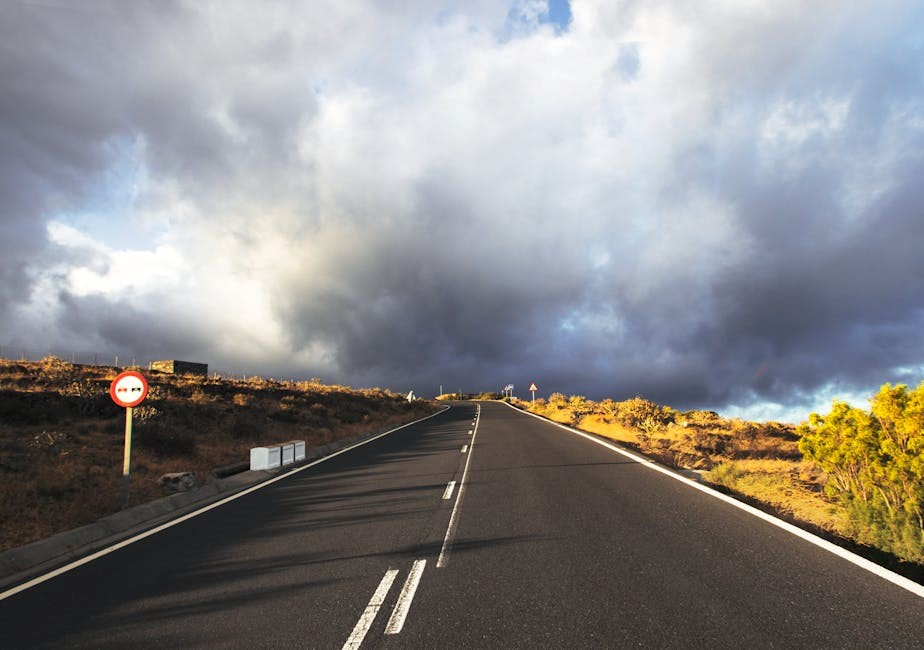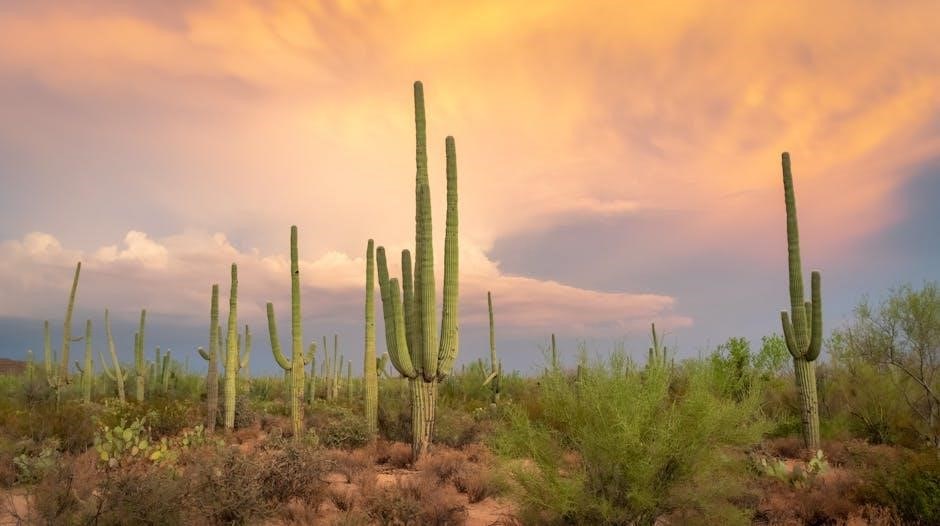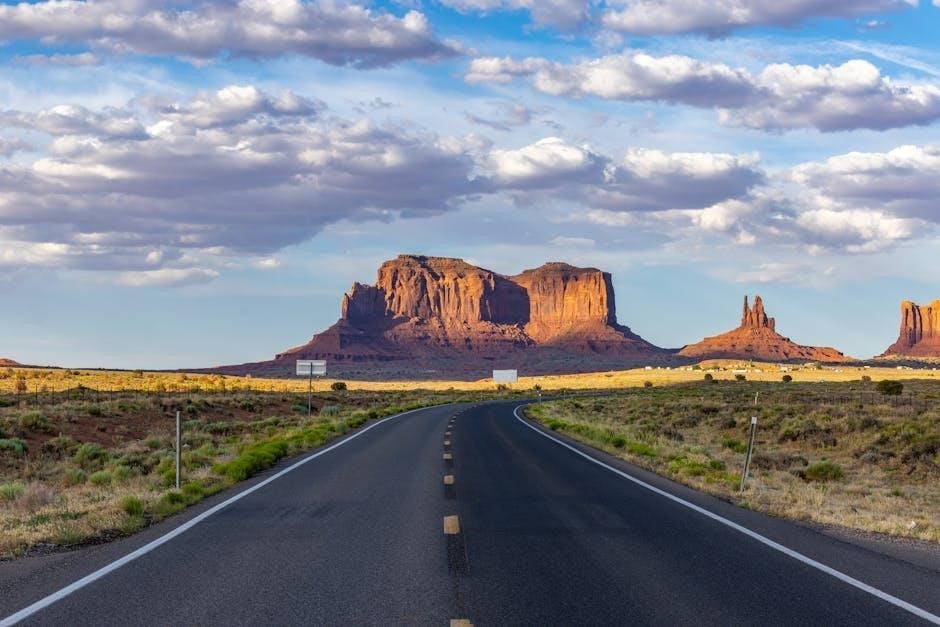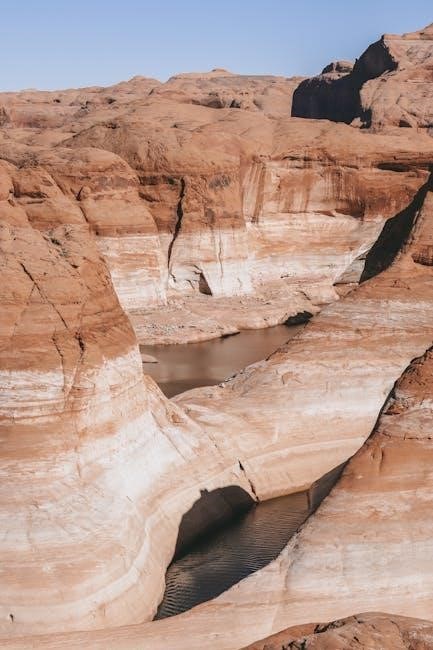Instructions for Traveling West: A Comprehensive Guide
Embark on an unforgettable westward adventure! This guide equips you with essential knowledge for journeys across the American West or West Africa. Discover tips for planning, budgeting, and navigating diverse cultures. Whether by car or public transport, prepare for a memorable trip.
Understanding the Journey West
Traveling west, whether across continents or within a country, presents unique considerations. This journey isn’t just about geography; it’s about adapting to new time zones, cultures, and landscapes. Understanding the challenges of jet lag, especially when flying west, is crucial. Your body clock needs adjustment. Consider shifting your sleep schedule before departure to minimize disruption.
Westward travel often involves diverse environments, from bustling cities to serene natural parks. The American West offers iconic landmarks and hidden gems, while West Africa presents vibrant cultures and breathtaking natural wonders. Each region demands a different approach to travel.
Overland travel, whether by public transportation or private vehicle, provides a deeper immersion into the local experience. Flying from capital to capital misses the nuances and cultural richness found along the way. Understanding the historical context, such as the cultural traditions of Japan if traveling there, adds depth to your journey.
The journey west also requires mental preparation. Embrace the unexpected, be ready for discomfort, and cultivate resilience. This adventure is as much about personal growth as it is about exploring new destinations.
Planning Your Trip West
Effective planning is the cornerstone of a successful westward journey. Start by determining the ideal time for your trip, considering factors like weather and peak seasons. Researching visa requirements, especially for destinations like West Africa, is essential. Ensure your passport is up-to-date.
Next, create a comprehensive travel budget. Estimate costs for transportation, accommodation, food, and activities. Remember that some regions, like West Africa, may have higher costs for essentials like water. Consider bringing a filtered water bottle to save money and reduce plastic waste.

Identify your must-see destinations. Whether it’s the national parks of the American West or the cultural hubs of West Africa, prioritize the experiences that resonate with you. Establish a flexible route that allows for spontaneous detours and unexpected discoveries.
Consider your accommodation options. From budget-friendly hostels to comfortable hotels, research and book in advance, especially during peak seasons. For road trips, explore unique lodging options along your route.
Finally, gather essential travel tips and tricks. Learn from experienced travelers and adapt their advice to your specific needs. Planning ensures a smoother, more enjoyable adventure.
Best Time to Travel West
Choosing the optimal time for your westward adventure is crucial, as it significantly impacts your experience. The “best” time depends heavily on your destination and desired activities. For the American West, consider the shoulder seasons (spring and fall) for milder weather and fewer crowds in popular national parks like Yellowstone.
Summer offers ideal conditions for hiking and outdoor adventures but comes with higher prices and busier trails. Winter transforms many areas into snowy wonderlands, perfect for skiing and snowboarding, but some roads and attractions may be closed.
When venturing to West Africa, the dry season is generally recommended. This period avoids the heavy rains that can make travel difficult and increase the risk of certain diseases. The dry season typically runs from November to May, but specific months may vary depending on the region.
Research the climate patterns of your specific destinations to make informed decisions. Consider factors like temperature, rainfall, and humidity. Also, be aware of local holidays and festivals, which can impact availability and prices.
Ultimately, the best time to travel west is when it aligns with your priorities and allows you to fully enjoy the unique experiences each season offers.
Creating a Travel Budget for the West
Crafting a realistic travel budget is essential for a stress-free westward journey. Start by estimating transportation costs, considering factors like gas prices if driving or flight expenses. Accommodation is another significant expense. Research options ranging from budget-friendly hostels to hotels or vacation rentals.
Food costs can vary widely. Plan for a mix of dining out and preparing your own meals to save money. Factor in entrance fees for national parks, museums, and other attractions. Don’t forget miscellaneous expenses like souvenirs, laundry, and unexpected costs.
For West Africa, budget for visas, vaccinations, and potential health precautions. Transportation within the region can be more expensive due to limited infrastructure. Be prepared to negotiate prices and factor in potential delays.

Track your spending during the trip to stay within budget. Utilize budgeting apps or spreadsheets to monitor expenses. Look for free activities and attractions to reduce costs. Consider traveling during the off-season for lower prices.
A well-planned budget allows you to enjoy your westward adventure without financial worries. Prioritize your spending and make informed decisions to maximize your travel experience.
Must-See Destinations in the West
The American West boasts iconic landmarks and natural wonders. Explore the glitz of Los Angeles, the rugged beauty of Yellowstone, and the awe-inspiring Grand Canyon; Visit national parks like Yosemite and Zion for breathtaking scenery. Discover charming towns and vibrant cities like San Francisco and Denver.
For a coastal adventure, consider a Pacific Coast road trip. Drive along Highway 1, stopping at scenic viewpoints and charming coastal towns. Explore the Redwood National and State Parks for towering trees. Visit Seattle for its vibrant culture and stunning views.
West Africa offers a unique travel experience with vibrant cities, pristine beaches, and natural wonders. Explore the bustling markets of Dakar, Senegal. Relax on the beaches of The Gambia. Discover the wildlife in national parks like Pendjari in Benin.
Consider visiting historic sites like Gorée Island in Senegal, a UNESCO World Heritage site. Immerse yourself in local culture by attending festivals and events. Be sure to research and respect local customs and traditions.
Whether you’re seeking natural beauty, cultural experiences, or urban adventures, the West offers a diverse range of destinations to explore.
Establishing Your Route West
Planning your route is crucial for a successful westward journey. For a US road trip, decide if you want a coastal route, a national park tour, or a mix of both. Use online mapping tools to plot your course, considering distances and driving times. Research potential stops and attractions along the way.
If traveling through West Africa, overland travel is recommended for an immersive experience. Consider using public transportation like buses or bush taxis, but be prepared for potentially long and uncomfortable journeys. Private vehicles offer more flexibility but may be more expensive.
Factor in border crossings and visa requirements if traveling between countries in West Africa. Research road conditions and potential hazards, especially during the rainy season. Consider hiring a local driver or guide for assistance navigating unfamiliar terrain.
For a Pacific Coast road trip, plan your route along Highway 1, allowing ample time for stops and detours. Consider adding inland destinations like national parks or wine country. Be sure to check for road closures or construction delays.
No matter your destination, thorough route planning ensures a smooth and enjoyable westward adventure.
Accommodation Options in the West
The American West and West Africa offer diverse accommodation choices to suit every traveler’s needs and budget. In the US, options range from budget-friendly motels and campsites to luxury hotels and resorts. Consider booking in advance, especially during peak season or near popular attractions.
Camping is a great way to experience the natural beauty of the West, with numerous campgrounds available in national and state parks. Reservations are often required, so plan accordingly.
For those seeking a more unique experience, consider staying in a vacation rental or a bed and breakfast. These options can offer more space and amenities than a traditional hotel room.
In West Africa, accommodation options vary depending on the region and your budget. You can find hotels, guesthouses, and hostels in larger cities, while smaller towns may offer more basic lodging.
Be sure to research and read reviews before booking, as standards can vary widely. Consider factors like location, safety, and amenities when making your decision.
Regardless of where you choose to stay, booking in advance is always recommended, especially during peak travel times. This ensures you have a comfortable and secure place to rest after a long day of exploring.
Overcoming Jet Lag When Traveling West

Traveling west can disrupt your body’s natural sleep-wake cycle, leading to jet lag. Fortunately, strategies exist to minimize its effects and adjust to the new time zone. Start by gradually shifting your sleep schedule a few days before your trip, going to bed and waking up later each day.
Stay hydrated by drinking plenty of water during your flight. Avoid alcohol and caffeine, which can worsen jet lag symptoms. Once you arrive, expose yourself to natural sunlight during the day to help reset your body clock.
Consider using melatonin supplements to regulate your sleep cycle. Consult your doctor before taking any new medications. Try to stick to your new sleep schedule as much as possible, even if you feel tired during the day.
Engage in light exercise to boost your energy levels and improve your mood. Avoid taking long naps, as this can interfere with your ability to adjust to the new time zone.
Adjusting to a new time zone takes time, so be patient with yourself. Allow your body a few days to fully adapt. With these tips, you can minimize the impact of jet lag and enjoy your westward adventure to the fullest.
Safety Tips for Traveling in the West
Traveling in the West, whether it’s the American West or West Africa, requires awareness and preparation to ensure a safe and enjoyable experience. Always be mindful of your surroundings and avoid displaying valuables that could attract unwanted attention. Keep your belongings secure, especially in crowded areas or on public transportation.
When driving, ensure your vehicle is in good condition and carry an emergency kit with essentials like water, a first-aid kit, and a flashlight. Familiarize yourself with local traffic laws and road conditions, and be prepared for varying weather conditions, especially in mountainous regions.
In the American West, be aware of wildlife and take precautions to avoid encounters with animals like bears or mountain lions. Store food properly and never approach or feed wild animals. When hiking, stay on marked trails and carry a map, compass, or GPS device.
In West Africa, research local customs and traditions and dress modestly to respect the local culture. Be cautious when consuming street food and ensure that water is purified or bottled. Avoid traveling alone at night and be aware of potential scams or petty theft.
Always inform someone of your travel plans and check in regularly. By following these safety tips, you can minimize risks and have a memorable and secure adventure in the West.
Money-Saving Tips for a Westward Trip
Embarking on a westward trip doesn’t have to break the bank. With careful planning and smart choices, you can experience the wonders of the West without emptying your wallet. One of the best ways to save money is to travel during the off-season. You’ll find lower prices on accommodation and flights, plus fewer crowds at popular attractions.

Consider alternative accommodation options like camping or staying in hostels to significantly reduce your lodging expenses. Cooking your own meals instead of eating out can also save you a considerable amount of money, especially on longer trips. Take advantage of free activities like hiking in national parks or visiting local museums on free admission days.
When it comes to transportation, explore options like carpooling or using public transportation to cut down on fuel costs and parking fees. Look for deals and discounts on attractions and activities, and consider purchasing a national park pass if you plan to visit multiple parks.
Be flexible with your itinerary and be open to spontaneous adventures that may not cost as much as planned activities. By implementing these money-saving tips, you can stretch your budget and enjoy a fulfilling westward trip without compromising on experiences.
Embracing the Unexpected on the Road West
The road west is not just a physical journey; it’s an exploration into the unknown, a dance with serendipity; Embrace the unexpected, for it is often in these unplanned moments that the true magic of travel unfolds. Be open to detours, spontaneous stops at quirky roadside attractions, and conversations with locals who offer unique insights into the region.
A flat tire, a sudden change in weather, or a closed road can disrupt your carefully laid plans, but these challenges can also lead to unforgettable experiences. Perhaps you’ll stumble upon a hidden gem of a town, a breathtaking vista you never knew existed, or a newfound appreciation for the resilience of the human spirit.
Allow yourself to deviate from your itinerary, to get lost (within reason), and to embrace the uncertainty that comes with venturing into the unknown. Keep an open mind and a sense of humor, and remember that the most memorable travel stories often arise from unexpected situations.
The road west is a teacher, a guide, and a canvas for creating memories that will last a lifetime. So, let go of your expectations, embrace the unexpected, and allow the journey to shape you in ways you never imagined.
